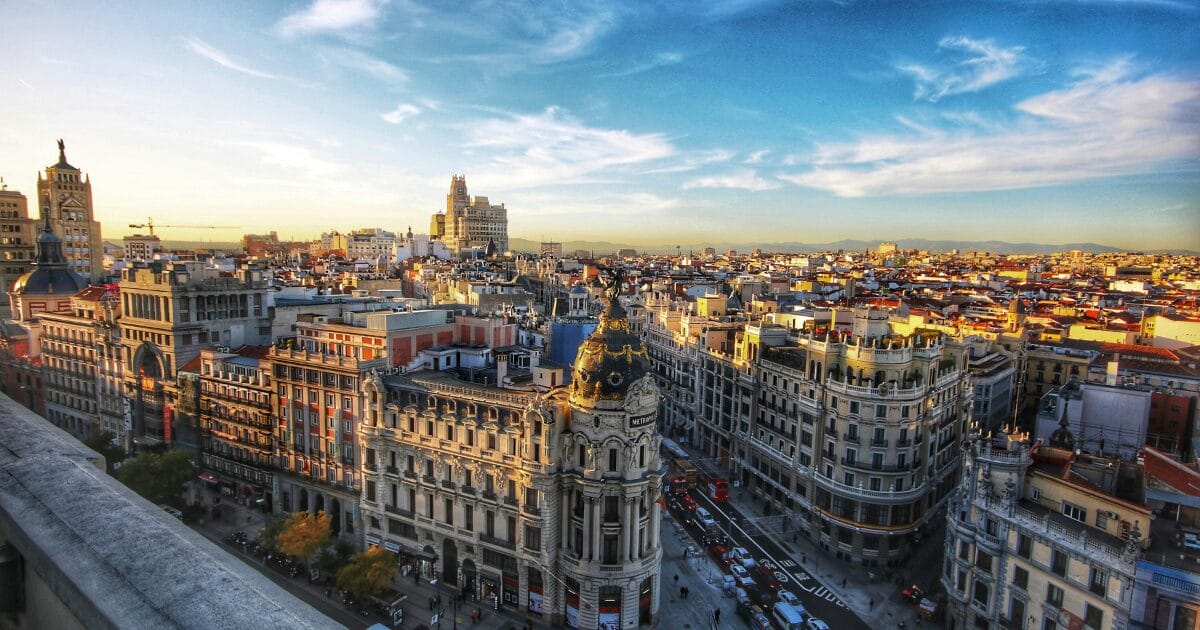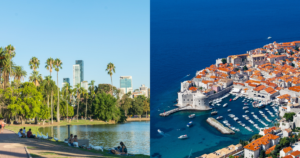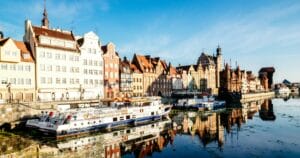Spain is a country that will amaze you. I’m from Spain, and I’ve lived there for 28 years of my life, so I’ve been all over, and I can tell you there’s always something new to see. From beautiful beaches to old cities, Spain has it all. However, some places are getting crowded, so it’s smart to plan your visit and explore some lesser-known spots as well.
Spain happens to be one of the best destinations in Europe for maximizing the number of free hotel nights you can earn with Marriott Bonvoy points, the best hotel points for Canadians. For a limited time, you can get 86,000 points with the record-high increased offer on the only card that’s a must-have for every type of traveler!
Here are 20 things you shouldn’t miss in Spain this year.
1. See La Mezquita in Córdoba
I might be biased (because my partner is from Córdoba), but La Mezquita in Córdoba is one of the coolest buildings you’ll ever see. It was once a mosque, but now it’s a cathedral, so it’s a mix of Islamic and Christian styles. There are rows and rows of red and white arches, and the details are incredible.

I’ve been lucky enough to live in Córdoba for a couple of years with my partner (and it’s where our daughter was born), and I can’t stress enough how amazing the Mezquita is. It’s incredible that, having been built in the 8th century, some architectural techniques are still difficult to explain today.
Here’s a tip: go early to avoid crowds. Don’t skip the bell tower; the view of Córdoba from up there is great. If you’re lucky, you might hear the big organ playing. It’s an experience you won’t forget. Entry is 13 EUR.
Andrew, Flytrippers’ co-founder, redeemed Marriott points at the very well-located AC Hotel Córdoba right next to the train station, and enjoyed the stay (and the city).
2. Visit the Alhambra in Granada
The Alhambra feels like a fairy tale. It’s a palace on a hill overlooking Granada. It has beautiful courtyards, intricate tilework, and peaceful gardens. The carvings and mosaics are so detailed that it’s hard to believe they were all done by hand.
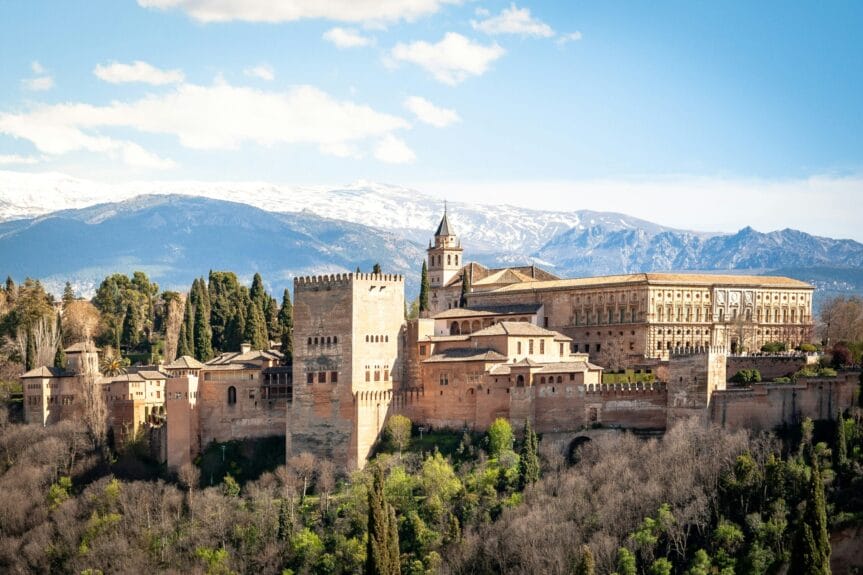
The building might not be as impressive as the Mezquita (they’re close, though), but the enclave is out of this world. Plus, Granada is an amazing city to visit. One of my favorites in Spain.
Book your tickets early, especially for the Nasrid Palaces. Give yourself lots of time; there’s a lot to see. For a special treat, stay for sunset. Watching the light change on the red walls of the Alhambra is really something. Access to the whole premises is 18 EUR.
3. Enjoy Barcelona’s charm
It’s hard not to fall for Barcelona. It boasts beaches, excellent food, vibrant nightlife, and stunning architecture. The Sagrada Família church is impressive, but don’t just do the touristy stuff. You can go to Poble Nou for some trendy restaurants and shops, or go to Gracia to see how locals really live.

Walk down the Ramblas, then explore the winding streets of the Gothic Quarter. Check out the Boqueria market for some of the freshest food you’ll ever taste. And if you can, catch a Barcelona soccer match at Camp Nou; the energy is amazing, even if you’re not a big soccer fan.
4. Walk through the white towns of Andalucía
The white towns of Andalucía look like postcards. These pueblos blancos, with their white houses and narrow streets, are scattered across the hills of southern Spain. Each town is different, but they all have that relaxed, sunny Andalusian feel.
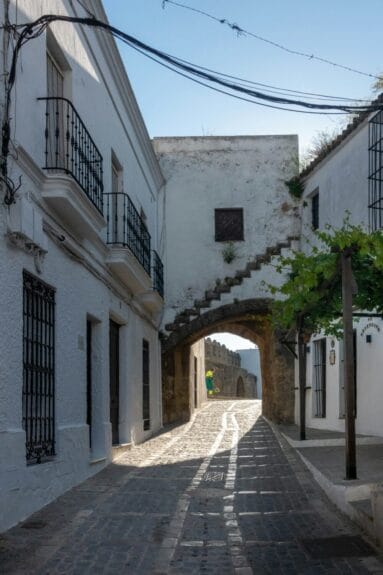
I really like Vejer de la Frontera. It’s on a hilltop with great views. Grab a cold drink in the main square (Plaza de España) and watch people go by. Or just wander the streets; you never know what cool things you might find. I’d recommend eating at El Califa. It’s quite touristy, but it’s 100% worth the hype. Book well in advance.
I also lived here for 7 months. I’d recommend going during Spring or early Autumn, as it has become so popular that it gets packed during Summer.
5. Check out Madrid’s great museums
Madrid boasts some of the finest museums in the world. The Prado is the main one, with amazing works by Velázquez, Goya, El Greco, and many more. But don’t stop there. The Reina Sofía has Picasso’s famous Guernica, and the Thyssen-Bornemisza has a bit of everything.
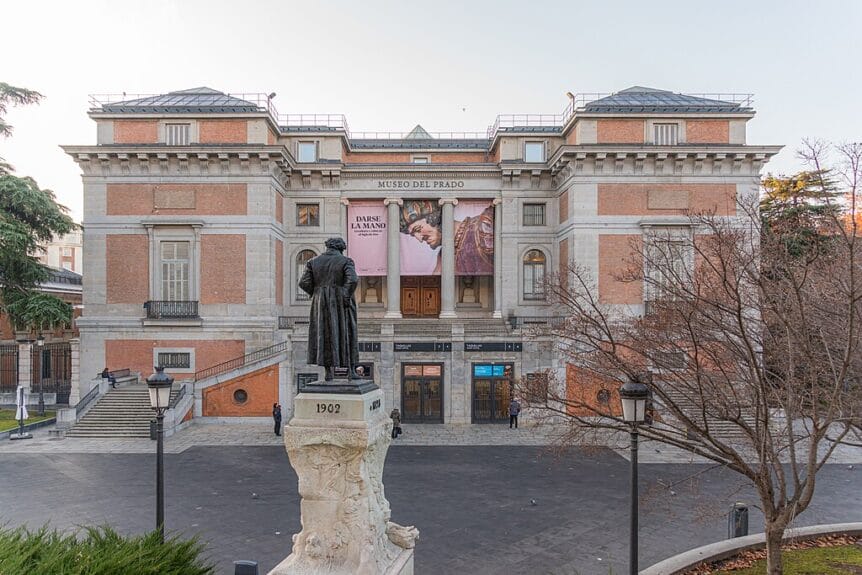
If you’re short on time, the Prado is free in the evenings, making it perfect for a quick visit. Here’s a local tip: check out the Sorolla Museum. It’s in the artist’s old house and feels like stepping back in time. The gardens alone are worth seeing.
If you’re a Canadian who loves Timmies, Spain is one of the many countries with Tim Hortons locations (and in Madrid, they’re easy to get to).
6. Relax on the beaches of the Balearic Islands
The Balearic Islands are a beach paradise. Mallorca, Menorca, Ibiza, Formentera, and Cabrera each have their own feel, but they all have clear waters and golden sand. May and June are great times to go: you’ll get good weather without the summer crowds.
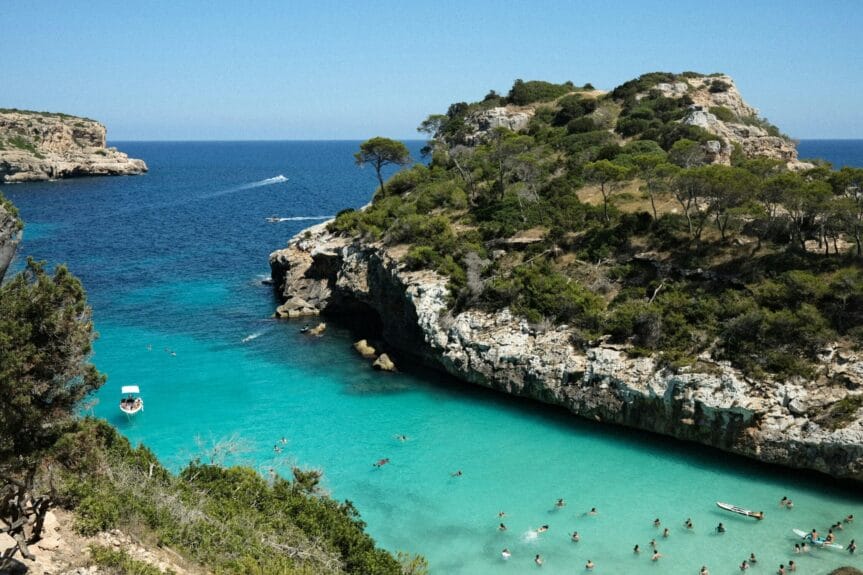
In Mallorca, try Cala Deià. It’s a bit of a walk to get there, but that means fewer people are there. If you go to Formentera’s Playa de Ses Illetes, you’ll think you’re in the Caribbean, with crystal-clear water.
And don’t think Ibiza is just for parties; the north has some quiet, peaceful coves.
7. Try pintxos in San Sebastián
Eating in San Sebastián is something special. The pintxos bars in the old town are a food lover’s dream. These little bites are packed with flavor, and the tradition of going from bar to bar is half the fun.

Start at La Cuchara de San Telmo for new takes on classic dishes. Then try Ganbara for their famous mushroom pintxos. Don’t be shy about pushing your way to the bar; it’s part of the experience. If you want fancy food, San Sebastián has more Michelin stars per capita than almost anywhere else.
You might have just seen the Basque Country’s delicious food on Netflix; it’s part of the destinations on Somebody Feed Phil’s newest season. This once well-kept secret treasure will become increasingly popular.
8. Eat seafood in Galicia
Galicia has some of the best seafood in the world. The cold Atlantic waters make for really tasty fish and shellfish. Try pulpo a la gallega (Galician-style octopus), a tender dish of octopus cooked with paprika and olive oil. Simple, but so good.

If you’re feeling brave, try percebes (goose barnacles). They look weird, but they’re delicious. Go to the Rías Baixas area for the best seafood. And have some local Albariño wine with it. It goes perfectly with all that seafood.
In the center of the city of Vigo, there’s one of the best Marriott deals: the beautiful AC Hotel Palacio Universal, for as low as 11,800 points per night (59,000 for 5 nights) in October, for example.
9. Go to Spain’s summer music festivals
Spain knows how to throw a party, and its summer music festivals are great. BBK in Bilbao has an amazing setting with views over the city. FIB in Benicàssim mixes great music with beach time. And Mad Cool in Madrid gets some big-name artists.
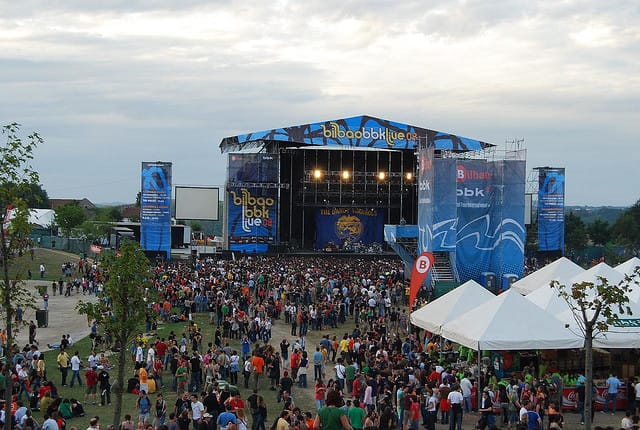
My favorite is Sonorama in Aranda de Duero. It’s more low-key, with a mix of Spanish and international acts. Plus, it’s in wine country, so you can enjoy some wine tasting as well. Just pace yourself; Spanish festivals often don’t get going until after midnight.
10. Visit the Costa Brava villages
The Costa Brava isn’t just about beaches. The little medieval villages along the coast are like stepping back in time. Pals, with its stone streets and Gothic buildings, feels like a movie set. Cadaqués, with its white houses and connection to Salvador Dalí, has an artsy vibe that’s hard to resist.
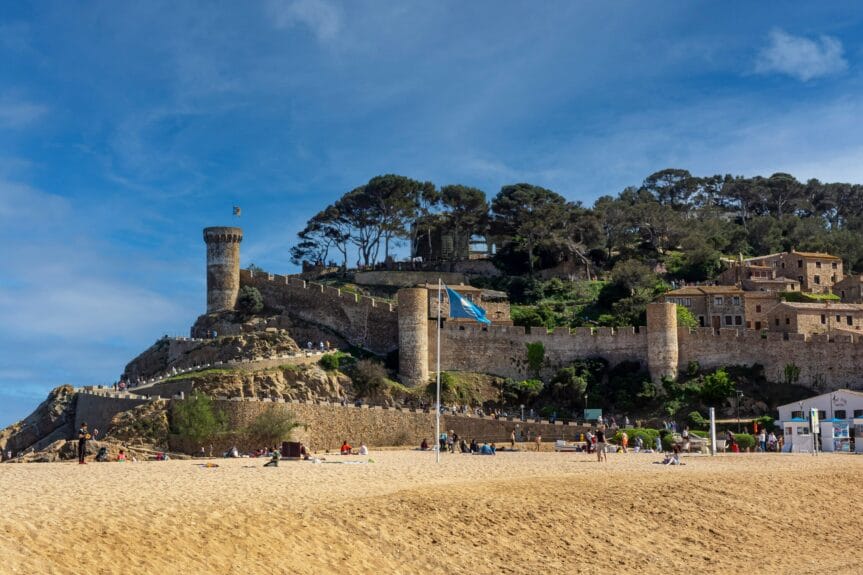
Take a day to explore Tossa de Mar. The old town has medieval walls, and the views from the lighthouse are great. And don’t miss Calella de Palafrugell, one of the prettiest fishing villages you’ll ever see. Sit at a beachfront restaurant and enjoy a long lunch of fresh fish and cold white wine.
You can visit many of these towns as a day trip from Barcelona, as they’re not far away.
11. Attend a real flamenco show in Southern Spain
Skip the touristy flamenco shows: the real deal is in Andalucía. In Sevilla, go to La Casa del Flamenco for a close-up show that’ll give you chills. It’s raw, passionate, and intense. The way the dancers move, the haunting singing, and the rhythmic clapping; it all comes together in a way that’s hard to describe.
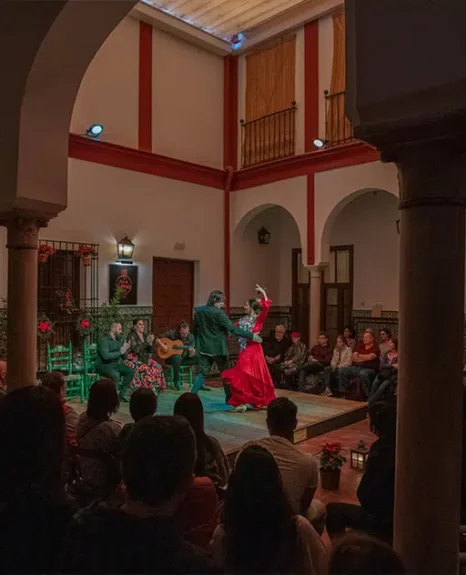
If you’re in Jerez de la Frontera, try to catch a show at Tabanco El Pasaje. It’s a tiny place where locals go, and the energy is electric. Don’t be surprised if you find yourself staying for one more drink, and one more performance, late into the night.
12. See Sevilla’s Easter celebrations
Sevilla during Semana Santa (Holy Week) is something else. The processions are serious and spectacular at the same time. Huge floats carrying religious statues are paraded through the streets, accompanied by haunting flamenco religious music.

It’s crowded, and hotels are expensive, but it’s worth it for the atmosphere. The air is filled with the scent of incense and orange blossoms. Even if you’re not religious, it’s a cultural experience you’ll remember. Just book way ahead; this isn’t the time for last-minute plans in Sevilla.
Andrew enjoyed staying at the AC Hotel Sevilla Forum with Marriott points. It’s much more affordable since it’s a bit farther away, which might be helpful during Holy Week, when cash prices are high. And you’ll get to be like the locals and take the bus ride into town.
13. Walk the Camino de Santiago in the off-season
The Camino de Santiago is famous, but going in the off-season is a whole different experience. You’ll have the trails more to yourself, and the cooler weather makes for easier walking. Plus, you’ll see more of the local life without the summer crowds.
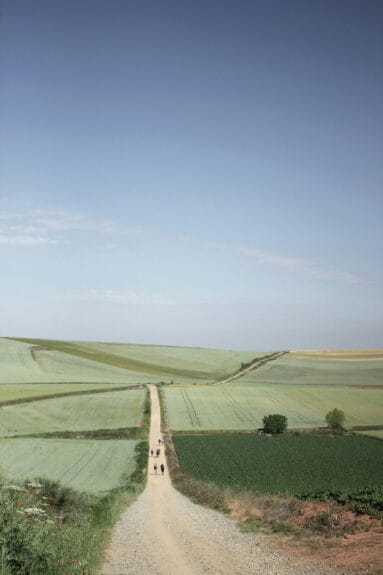
October or April are good times to go. You’ll still get decent weather, but with fewer people. Northern Spain is beautiful any time of year, but there’s something special about seeing the first signs of fall or spring as you walk.
14. Hike in the Picos de Europa
The Picos de Europa, located in northern Spain, are ideal for hiking. These sharp limestone peaks offer trails for all levels, from easy walks to tough climbs. The Cares Gorge trail is a must-do. It goes along the side of a deep canyon, with the river rushing below.
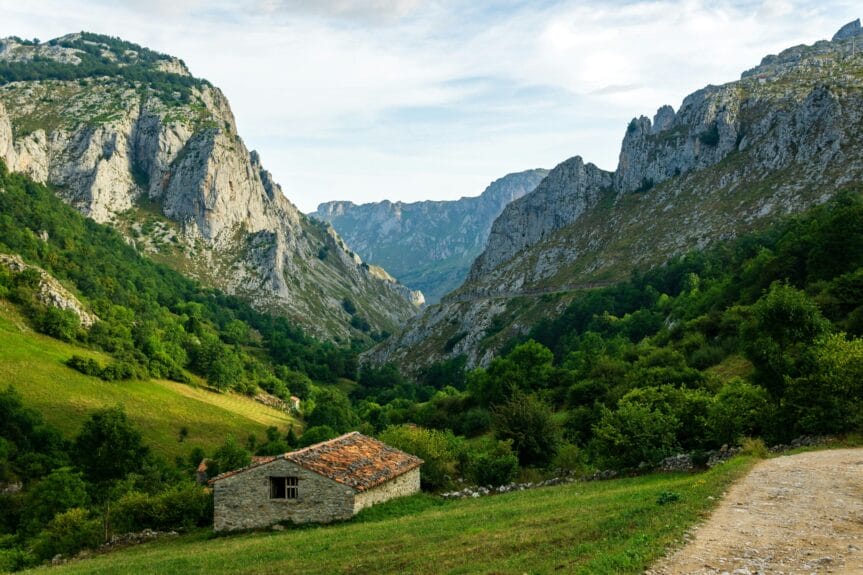
Stay in one of the mountain huts for a real adventure. Waking up to those mountain views, with just the sound of cowbells in the distance, is just magical. And try some local Cabrales cheese. It’s strong but perfect after a long day of hiking.
Mountains might not be the first thing that comes to mind when you think of Spain, but they are gorgeous.
15. See Spain’s amazing cathedrals
Spain’s cathedrals are really something. The one in Santiago de Compostela is where the Camino ends, and it’s beautiful. In Burgos, the cathedral is a masterpiece of the Gothic style. And the one in Toledo is like a history book made of stone.
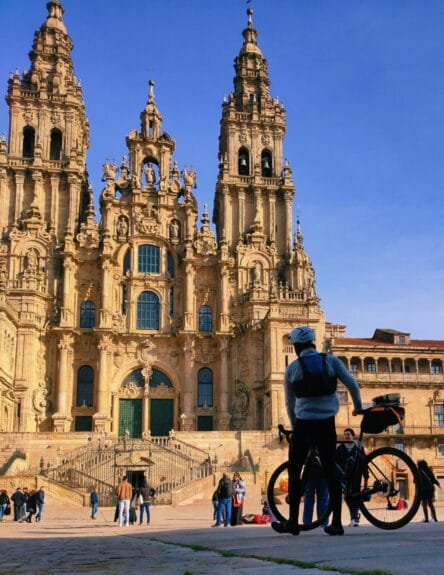
But my favorite is the cathedral in León. The stained glass windows are amazing, especially when the sun shines through them. It’s the kind of place that makes you stop and stare, no matter how many cathedrals you’ve seen before.
All 3 of these cities have nice hotels at decent prices in Marriott points: the AC Hotel Burgos and the AC Hotel León San Antonio are relatively close to the cathedral, and you can read below for the one in Toledo.
16. Go wine tasting in La Rioja
La Rioja is wine heaven. Rolling hills covered in vineyards, old wineries, charming villages; it’s all part of the experience. Start in Haro, where you can walk between wineries without a car.

Don’t miss the chance to visit some of the newer wineries, too. Places like Marqués de Riscal or Ysios are works of art in their own right. And remember, it’s not just about tasting; take the time to learn about how the wine is made and the history of the area. It’ll make that glass of Tempranillo taste even better.
The AC Hotel La Rioja can be a great deal with Marriott points, depending on the cash price.
17. Experience Ibiza’s nightlife
Okay, Ibiza is known for parties, and for good reason. If you like electronic music, places like Pacha or Amnesia are must-visit spots. The light shows are amazing, and the energy is like nothing else.

But don’t forget about the other side of Ibiza. The sunset at Café del Mar is popular for a reason: it’s stunning. And the hippie markets are great for finding unique souvenirs. If you need a break from the noise, head to the quieter north of the island for beautiful beaches and a more relaxed vibe.
18. Surf in the Basque Country
The Basque Country has some of the best surf in Europe. Mundaka is famous for its left-hand wave, but there are spots for all levels. Zarautz is great for beginners, with its long, sandy beach and consistent waves.

Even if you don’t surf, the beach culture here is worth seeing. Grab a spot on the sand, watch the surfers do their thing, and enjoy the laid-back vibe. And when you’re done, head into town for some pintxos and txakoli (local white wine). It’s the perfect end to a day by the sea.
19. Experience Las Fallas in Valencia
Las Fallas is crazy in the best way. For one week in March, Valencia goes all out with giant papier mache sculptures, fireworks, and non-stop partying. The sculptures (fallas) are works of art, often poking fun at current events, and they’re all burned on the last night in a big show.
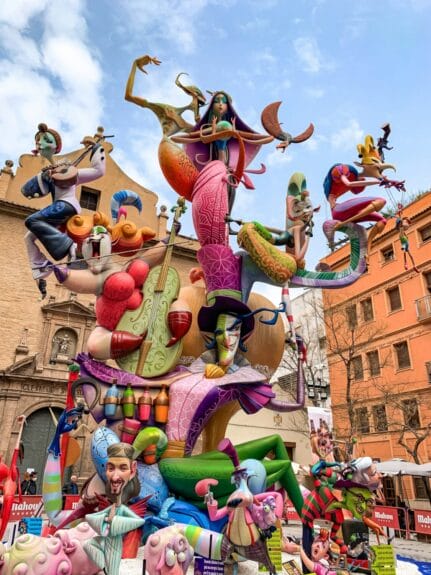
It’s loud, it’s chaotic, and it’s uniquely Spanish. The streets are full of people partying at all hours. If you don’t like crowds, it might be too much. But if you want to see Spanish festival culture at its most intense, Las Fallas is hard to beat.
Especially during the festival, when cash prices are high, the AC Hotel Valencia can be a great redemption of Marriott points.
20. Explore Toledo
Toledo is like an open-air museum. The winding streets, the mix of Christian, Jewish, and Muslim buildings; it’s a history buff’s dream. The cathedral is stunning, and El Greco’s masterpiece, “The Burial of the Count of Orgaz,” in the Church of Santo Tomé, is worth the trip alone.
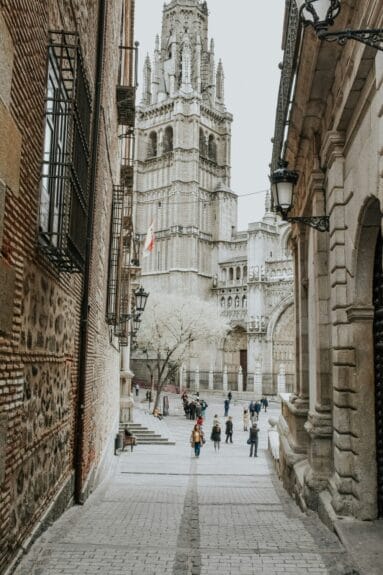
Take time to wander without a map. You’ll find little squares, hidden churches, and great viewpoints. And don’t leave without trying some marzipan; it’s a local specialty. The Convent of San Clemente makes some of the best in town.
One of Andrew’s favorite Marriott hotels in Spain is the AC Hotel Ciudad de Toledo, which sits on the cliff opposite the city, giving you a breathtaking view of the city.
FAQs – Frequently asked questions about Spain
Here are a few other commonly requested answers.
What is Spain known for?
Spain is famous for lots of things. People love it for its sunny beaches, lively cities like Barcelona and Madrid, and its delicious food, such as paella and tapas.
It’s also known for flamenco dancing, bullfighting (though not everyone likes it), amazing buildings like those by Gaudí, and great soccer teams. Don’t forget the festivals: from La Tomatina to San Fermín, Spain knows how to throw a party. Oh, and the siesta; though these days it’s not as common as people think!
What’s the top attraction in Spain?
That’s hard to say because Spain has so much to offer, and different people like different things. But if we had to pick, many would say it’s the Sagrada Família in Barcelona.
I don’t love it, personally. I’d put the Alhambra in Granada or the Mezquita in Córdoba above. They’re less crowded and way more impressive.
What’s the most visited city in Spain?
Barcelona is the most visited. It has a bit of everything: nice beaches, amazing architecture, fantastic food, and a lively atmosphere. It’s also easily accessible, with a major airport offering flights from all over.
Madrid is a close 2nd, though. And while they’re both great, remember there’s so much more to Spain beyond these 2 cities!
Learning how to travel for less
Join over 100,000 savvy Canadian travelers who already receive Flytrippers’ free newsletter so we can help you travel for less (and inspire you, too)!
Sign up for our free newsletter
Sign up for our newsletter
Summary
Spain is a country that always has more to offer. From beaches to mountains, big cities to tiny villages, there’s always something new to find. So pack your bags, bring your sense of adventure, and get ready to fall in love with Spain. Just remember to look beyond the famous spots; some of the best experiences are in places you’ve never heard of. Have a great trip!
What would you like to know about the best things to do in Spain? Tell us in the comments below.
See the flight deals we spot: Cheap flights
Discover free travel with rewards: Travel rewards
Explore awesome destinations: Travel inspiration
Learn pro tricks: Travel tips
Featured image: Madrid, Spain (photo credit: Jorge Fernández Salas)

